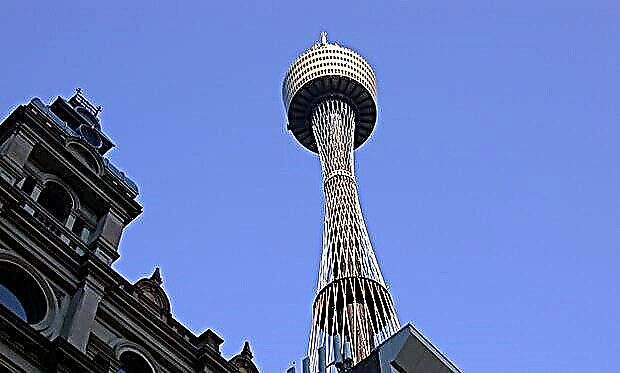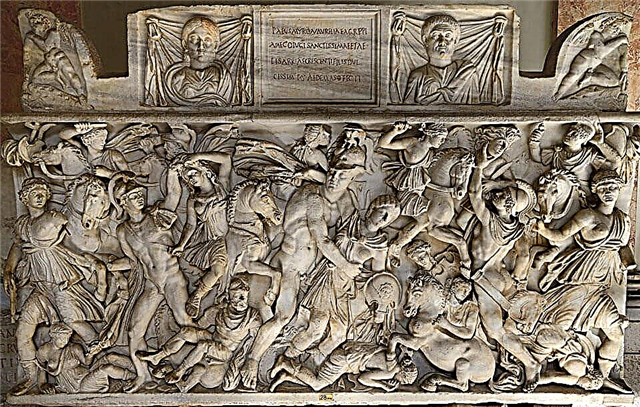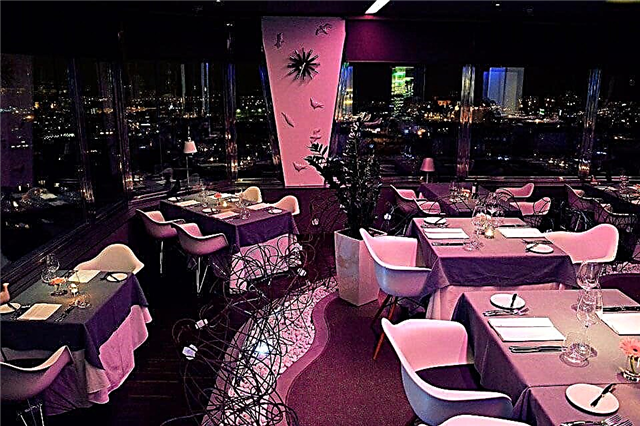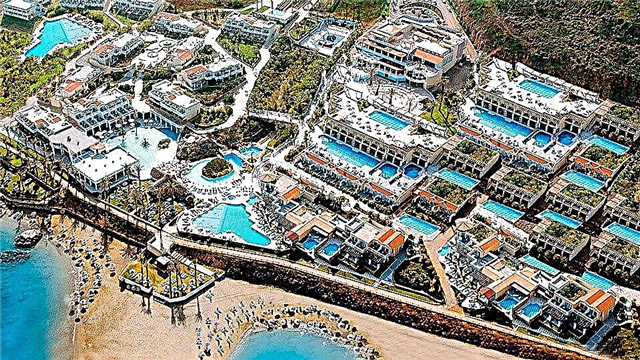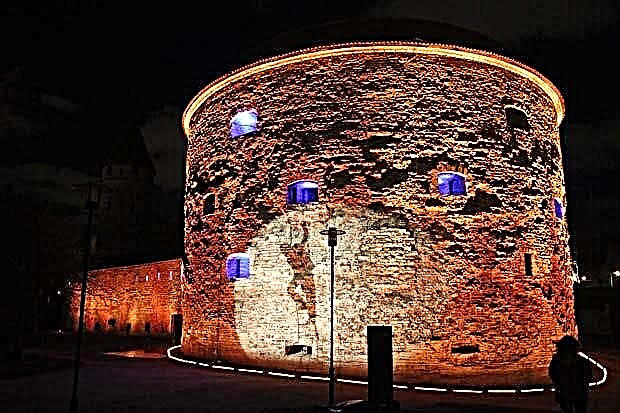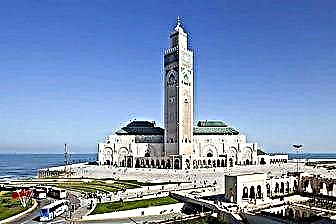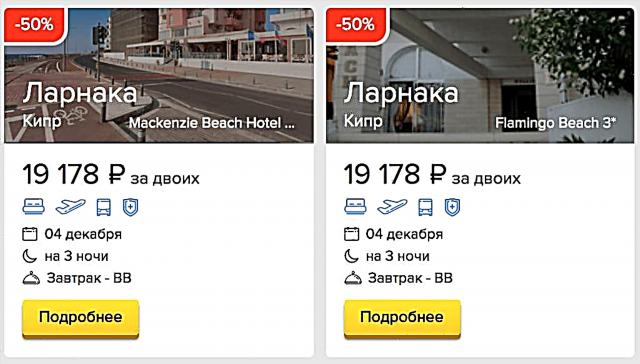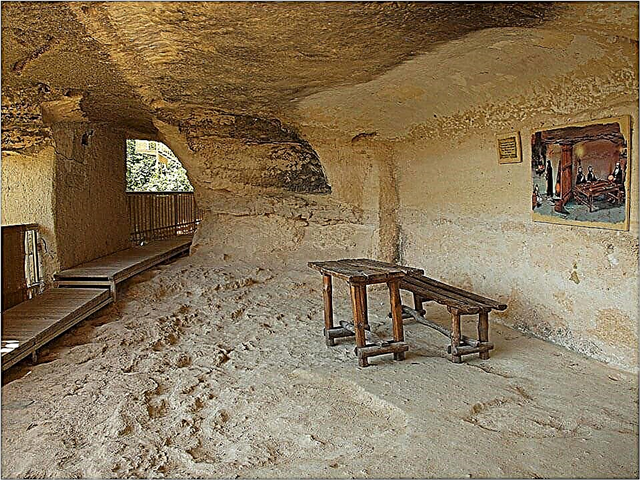Bulgaria, in the minds of many Russians, is a country where it is worth flying in the summer, to bask on the golden sands of seaside resorts. But not everyone knows how many different sights there are - natural, cultural. Take Varna - people have lived on these lands since time immemorial, archaeologists have found a lot of evidence of this. And the heroic past of this city! You can come here at any time and for any period, impressions will last for a long time. What to see in Varna in 1 day on your own? Choose for yourself.
Cathedral of the Assumption of the Blessed Virgin

This is not just a beautiful cathedral, but also a real symbol of independence. For many centuries Bulgaria was an Orthodox country, having inherited religion from Byzantium. After this land was conquered by the Turks, Christians had a hard time. Many churches were destroyed, valuables were removed from them. The conquerors turned the surviving churches into mosques. Only in the second half of the 19th century, the Bulgarians, with the help of the Russian army, were able to achieve the country's independence.
In memory of this war, as a token of gratitude to the liberators, the cathedral was built. It was erected by the whole world - both ordinary people and nobility donated money. The decision was initiated by a special committee - the opinion of the townspeople and the local bishop Simeon was taken into account. And the first stone in the foundation of the cathedral was laid by Prince Alexander the First. The Russian Empress Maria Alexandrovna, the wife of the emperor-liberator Alexander II, was the first person in Bulgaria as her own aunt. The prince decided to dedicate the cathedral to the Most Holy Theotokos, Heavenly Patroness Maria Alexandrovna.
The project was carried out by I. Maas from Odessa, and the construction was headed by the Bulgarian I. Kupka. It cannot be said that the cathedral is designed in the same style. Here is the heritage of Byzantine culture, and features characteristic of Russian churches, and even some elements of the Gothic. Golden domes are a real decoration of the city, and the inhabitants of Varna are rightfully proud of their cathedral. It is worth examining it not only from the outside, but also to go inside. You will see very beautiful paintings.
Archaeological Museum

This wonderful museum can give its guests a lot of impressions. Scientists and enthusiasts began to collect exhibits for him a long time ago - in the second half of the 19th century. Then in Varna there was already an archaeological society, which initiated the creation of the collection. At first it was small and housed in the city library. But soon it was decided to move the museum into a beautiful neo-Renaissance mansion built by the famous architect P. Mamchilov. The museum opened at the new site at the beginning of the 20th century.
The abundance of exhibits is due to the fact that people have lived on the territory of Bulgaria since ancient times. Several rooms are dedicated to the Paleolithic era, and there are also finds from Ancient Thrace. This is followed by "Antiquity" and "Middle Ages". You can see a wide variety of objects - tools and jewelry, weapons and utensils, works of art and preserved documents - evidence of a particular era. Orthodox art is presented with very interesting finds. And the main treasure of the museum is gold items, which are already several thousand years old. They were found during excavations of a necropolis located not far from Varna.
Boulevard Prince Boris I

A charming boulevard that simply cannot be avoided. It stretches from the Independence Square and is the main pedestrian street of the city. You can come here for different purposes. Including, as they used to say, to look at others and show themselves, to walk in a beautiful outfit. Here you can buy souvenirs - the choice is huge. From rose oil in original bottles to the skillful creations of local craftsmen. Although this boulevard is a very popular place among the townspeople, the prices will still not be too high.
If you come here with children, they will surely find new friends among their peers. Adults can have a beer or sit in a coffee shop. And the most curious tourists will pay attention to the buildings lined up along the boulevard. They are all old, they all have their own history. They are amazingly beautiful. Some are built in the Baroque style, others are reminiscent of the Gothic. It is best to walk along the boulevard with a guide who can tell you the story of each house.
Seaside park

This old park (its other name is "Marine Park") has become a favorite vacation spot for residents of Varna. You can come here with your children for the whole day. The park was designed by Anton Novak, an architect from the Czech Republic, and this happened in the 19th century. Before that, the territory was an abandoned piece of land on the seashore. Now you can see beautiful alleys surrounded by trees, among which there are many conifers. Therefore, the air here is truly healing.
The flower beds are broken, the flowers are fragrant. The streams of fountains sparkle in the sun. You can stroll slowly, sit on benches, admire sculptures - they are presented here in abundance. In addition, the Marine Park houses museums and such attractive tourist centers as a planetarium, a zoo, and a dolphinarium. You can go down to the beach, swim, or take your child to the rides. The Summer Theater regularly hosts entertainment events. Well, and, of course, in the park you can have a snack in a cafe and buy souvenirs in small kiosks.
Nicolaus Copernicus Planetarium and Observatory

In the second half of the 20th century, interest in astronomical observations increased sharply. This was due to the launch of an artificial satellite, and then to the flight into space of the first cosmonaut. In 1960, the Astronomy and Cosmonautics Club was opened in Varna. A few years later, the city was visited by German Titov, a follower of Yuri Gagarin. He came as part of the congress of members of the International Federation of Aviation and Cosmonautics. Then it was decided that an observatory would appear in the city.
At first, she occupied the premises of the Summer Theater, then the construction of her own building in the Primorsky Park began. The architect was K. Goranov. The result is a whole complex - not only an observatory, but also a planetarium, as well as a turret with a Foucault pendulum. Thanks to him, you can make sure that the Earth makes rotational movements around its axis. The complex conducts astronomical observations, here you can listen to lectures, admire the stars and planets, read books about them - there is also a library here.
Zoo and Terrarium

Both adults and children will be interested in visiting the zoo. The menagerie is quite old - it was opened back in 1961. The money was allocated by the sailors of the ship "Maxim". The terrarium appeared much later - almost 40 years later. Today over 70 species of fauna can be seen here. These are animals and birds, including rare ones, their names are included in the Red Book. You can admire the predators - lions, tigers, panthers.
Feed the camel and the llama, watch the handsome peacock spread its tail. The pride of the zoo is the most beautiful black swans. The menagerie works daily. The terrarium contains various types of snakes, spiders, lizards, turtles, frogs. Good conditions have been created for everyone, guests will be told what insects and reptiles eat, what kind of life they lead.
Naval museum

The first exhibits for this museum began to be collected by naval officers in the 80s of the 19th century. Much later, already in 1923, the first viewers were able to take a look at the collection. And in the 50s, the museum entered the system of the Ministry of Defense. Today it is housed in a building dating back to the 19th century, which in itself attracts attention.The museum presents ancient anchors, finds made at the bottom of the sea - fragments of ships, bow figures.
Also on display are the uniforms of sailors and officers. Museum guests can look at flags, marine instruments, ship models and much more. But the most interesting are those exhibits that are in the open air. This is the famous destroyer "Daring", famous in battles, a yacht that went around the world, a minesweeper, various types of weapons, even Bulgarian helicopters. The inhabitants of Varna are rightfully proud of this museum.
Roman Baths

Roman baths - or baths - are another confirmation that people inhabited this land in ancient times. They were built around the 2nd century AD. These are the largest baths on the territory of the Balkan Peninsula, but if we take Europe into account, they will be in 4th place. Presumably, the baths were used for 150-200 years. It was a whole complex.
Inside there was a courtyard where merchants' shops were located. Then the men and women went to their offices. The thermal baths had lobbies and pools, halls for pouring water, recreation rooms, restrooms, and service rooms. The marble floors were heated. The water tower, the size of a 6-storey building, provided uninterrupted water supply. The complex itself took up about as much space as a modern football field.
Euxinograd Palace

It is not difficult to see the summer residence of the rulers of Bulgaria - it is located a few kilometers from Varna. Those who have visited the Crimea, examining Evksinograd, will remember the places where the family of the last Russian emperor rested. The construction of the palace began at the end of the 19th century by order of Prince Alexander Battenberg, and work was completed under the next ruler of the country, Prince Ferdinand. The Renaissance palace looks luxurious.
Until now, important state receptions are periodically held here. Preserved furniture made of valuable wood species, stylish chandeliers, interior items - paintings, clocks, ornaments. The name of the palace comes from the ancient Greek name of the Black Sea "Euxine Pontus". There is a beautiful park around the palace. This required the delivery of both land and tree seedlings - palms, cedars.
Guests can explore the "Greek Garden" and "English Garden", admire the sculpture of Neptune that adorns the reservoir. The pride of the complex is the wine cellars, built and equipped according to the project of a German architect. Fine wines are still kept there, and a tasting room is open. You can also see the ruins of the ancient fortress, which are located in the park.
Varna Opera House

The theater building is relatively small, but at the same time it is one of the most beautiful in the city. The Empire style emphasizes the architect's impeccable taste. The creative team of the theater is so good that it has already been invited to perform in other European countries. The residents of Varna consider the day when they got here to see the performance as a real holiday. The theater opened back in 1947. Since then, its doors have not been closed. Concerts are held here, spectators come to watch opera performances, operetta, musicals, performances for children.
Moreover, there are both classical performances and performances created by contemporary authors. It was once planned that the Summer Theater and even a casino would be added to the main building. But, in the end, it was decided that there would be other places for these objects in the city. Today the Varna Opera House is the second most popular in the country, second only to a similar theater in Sofia.
The world's most famous opera singers have performed here. It is possible that during your arrival in Varna, some celebrity will also sing on the stage. And how wonderful it will be to hear the divine music of Strauss or Legrand again! It is very easy to find the theater - it is located next to the Seaside Park.
Armenian Church of Saint Sarkis

Armenians have lived on the territory of what is now Bulgaria since time immemorial. Therefore, it is natural that their churches are here. Once upon a time, in the place where the temple of St. Sarkis is now located, there was a modest wooden chapel. It burned down in a fire, and a few decades later, in 1844, a new church was built here. It has a multifaceted dome and a square bell tower. Inside, Orthodox believers will be surprised to note the absence of an iconostasis separating the altar. The walls of the temple are decorated with beautiful paintings.
According to the lives, Sarkis was a brave warrior and successfully fought the pagans. Like Saint Valentine, he patronizes lovers. It is believed that if he prays well, you can see your betrothed or betrothed in a dream. It is not so easy to see the inside of the church - it is open mainly during services. But if you get here, you will be surprised. Nondescript from the outside, the inside of the church looks luxurious and somehow airy. You can put candles to the icons, and ask the Savior and Saint Sarkis about what you most want.
Dolphinarium

Dolphinarium "Fiesta" is very popular with spectators of all ages. It opened in 1984, and its first artists were bottlenose dolphins who arrived here from the Atlantic. In a short time, they have mastered a large number of tricks. Smart mammals perform real acrobatic acts, jump over a hoop, play ball, dance and even sing songs. And, of course, you can take pictures with them. There are souvenir kiosks selling funny things that will remind you of visiting the dolphinarium.
There are also discs with recordings of the performance. It is very convenient that the comments sound in several languages, including Russian. The show lasts approximately 30 minutes. If you agree in advance, you can even swim next to the dolphins. The impressions will remain unforgettable. If during your stay in the dolphinarium you want to have a snack, there is a cafe here. You can sip a cocktail through a straw while watching the games of dolphins through the panoramic window.
Varna History Museum

This interesting museum is a must-see. There is nothing pompous here - it just shows what Varna was like before, from the second half of the 19th century to the outbreak of World War II. The very atmosphere of a friendly resort town has been recreated. You will be able to see how the workshops and shops of artisans looked like, the studio where the photographer worked, the cafe where the clients drank coffee. Even a small courtyard looks "alive".
The museum opened in 1969, and since then the number of exhibits has been increasing. Clothes, both civilian and military, are presented. A lot of old photographs have been collected, and exhibits from Euxinograd have been added to the collection. An invaluable exhibit is the grand piano, which was purchased in 1926 when Varna was preparing to host the first international music festival. Since then, it has been held regularly. Perhaps you will also find the "Varna Summer".
Ethnographical museum

The museum was opened in 1974. Everything related to the cultural traditions of the region in the 19th century and at the beginning of the 20th century is collected here. Then the local population was engaged in agriculture and viticulture, cattle breeding and beekeeping, fishing and various crafts. The tools of labor that were used for plowing the land, dishes, and suits have survived. It is in clothing that national characteristics are well traced. After all, settlers from various countries came to the lands surrounding Varna.
Wedding and festive clothes are of great interest. You can learn a lot about the customs and traditions of local residents. Purchase books and souvenirs. The building itself breathes with antiquity, and the photos are wonderful. Models of mills and residential buildings, an old clock with a pendulum, a bed with metal backs ... In this museum you will feel the authentic atmosphere of old Varna.
Retro Museum

Bulgaria during socialism - can you see how everything was then? You can, if you look at this museum. It opened quite recently, in 2015.And the exhibits that are presented here belong to the time period 1944-1989. Things of that time are exhibited here - cigarettes and perfumes, household appliances, including Russian-made ones, cosmetics, clothes and much more. Want to know what a popular brand vacuum cleaner looked like? Or non-filter Bulgarian cigarettes? And what about the famous cosmetics, which in the USSR could be bought exclusively in Moscow, and in the Sofia store?
Here you will be told and shown everything. The pride of the museum is a collection of cars. Then they were a luxury - "Zhiguli", "Moskvich", "Volga", "Skoda" and others. There is even a Chaika limousine, which was used by the most important statesmen. By the way, you can see them themselves. Many tourists are photographed next to the wax figures of great politicians.
Graffit Gallery Design Hotel
Varna
400 meters from the Black Sea coast

Grand Hotel London
Varna
This boutique hotel is renowned for its rich history and unique design

Rosslyn Dimyat Hotel Varna
Varna
Located in the center of Varna, near the Sea Garden, 500 meters from the beach

Ventura Boutique Hotel
Varna
The beach can be reached in 10 minutes, the hotel has its own mini-brewery

Park-Museum "Vladislav Varnenchik"

In the middle of the 15th century, more precisely, in 1444, a grandiose battle took place near Varna: Christian warriors tried not to let the Ottoman Turks to the lands of Europe. The death toll was in the thousands. Vladislav III Yagailo also died here. It was not possible to find his body. According to the most reliable version, the Turks lifted Vladislav's head on a spear, and carried him triumphantly through the streets of Bursa. According to another legend, Vladislav could not survive the shame of defeat and became a hermit. One way or another, a mausoleum was built in the park, where a stone sarcophagus was erected in memory of the hero. It seems that the guests see the hero with their own eyes - the sculpture is made very authentically, the lying commander clutches a sword in his hands.
Big changes took place in the park in 1964, when the 520th anniversary of the battle was celebrated. A museum was built here, which contains everything related to the famous battle. From weapons, banners and knightly armor, to works of art dedicated to this topic. Of great interest are the various layouts that allow you to recreate the details of the battle. Although the park-museum is located quite far from the city center, the excursion here will not be tiresome. To make everything clear to guests, they are given a text printed in Russian.
Varna burial ground

This famous burial ground was discovered by accident. In the 70s of the last century, during excavation work, several gold jewelry fell into the bucket of an excavator. To date, about 300 graves have been found, which is, according to scientists, about two-thirds of the necropolis. Over 3 thousand items of gold and several hundred samples of ceramics have been discovered. It is proved that the people who are buried here lived around the end of the 5th millennium BC. The men were buried lying on their backs, the women rested on their sides, in the "fetus" position. In the graves they put what the deceased might need in the afterlife - dishes, jewelry, weapons, figurines of idols, talismans.
If the body could not be delivered to the place of burial, a clay head was buried, and instead of eyes, nose and mouth there were precious stones. One of the graves turned out to be a real treasure. Together with the man, numerous gold items rested here, their weight was about 1.5 kg. All in all, the necropolis "presented" over 6 kg of gold to the scientists. But the main wealth is the new knowledge about the life of ancestors, which was obtained by researching burials.
University Botanical Garden "Ecopark"

If you love nature, you can appreciate this eco-park with its natural and artificial ecological systems. It covers a large area - 36 hectares. Rare trees, shrubs and herbs are grown here. Amazing irises, many varieties of roses grow here. You can see what a tulip tree, sea pines, iron and paper trees and other curiosities look like.
In addition, there is a jockey club, where a horse lover can indulge in any whim. For example, ride in a vintage convertible through the alleys, or ride a horse. National tournaments are held here, and in March they celebrate the Horse Festival (Todorov Day) - a very beautiful event. There is a biological station where students are trained, there is also a market where you can buy seedlings for summer cottages or exotic indoor plants.
Those who stay in hotels nearby love to come here. Part of the garden resembles a virgin corner of nature, where no one will interfere with your time. You can come here for a picnic, order a barbecue. Children are delighted with a small waterfall, and avid gardeners do not leave the garden without purchasing new plants.
Historical and ethnographic complex "Fanagoria"

This complex is intended to show the important place of the pro-Bulgarian culture in the history of the country's development. It will be interesting to visit for children, teenagers and adults. Fanagoria appeared relatively recently. Construction work began in 2001, and the complex was opened in 2002. Now here you can clearly imagine what a military camp looked like around the 8th century AD. Protective structures made of wood, workshops, yurts and temples. The costumes of that time, weapons, household items have been recreated. On the territory there is a shooting gallery, places for spectators. Lectures and master classes are held here, and in the evening you can watch an equestrian show.
There is also a school where children are taught to ride a horse. If you want to bring unusual souvenirs from Varna, you can buy them right here. They are copies of antique items. You can visit the complex any day of the week, except Monday. Whole families come here, and when they leave, they leave rave reviews. They write that even the air here is somehow special, "historical". Subsequently, much more will be built in "Fanagoria": a real fortress, a suspension bridge, even an Orthodox church. It can be seen with what love the people of Bulgaria relate to their past.
Aladzha monastery

The monastery is located in the Golden Sands park. Its name "Aladzha" is translated as "motley". Most likely, it came from the fact that the colored frescoes seemed especially bright on the gray stone. The real name of the monastery has not yet been precisely determined. According to one version, he was dedicated to the Savior. Monks lived here in the 13-14 centuries. Interestingly, there is a network of caves a few hundred from the monastery. Apparently, people settled in them even in the first centuries of Christianity, since there remained: ceramics, coins, various products.
As for the monastery, it was badly damaged by the Ottoman Turks, but the hermits stubbornly returned to their caves - until the 18th century, and at the end of the 19th - scientists became interested in the monastery. In 1968, the monastery was recognized as a cultural monument of national importance. There really is something to see here. On the first level there were monastic cells, there was also a temple, a refectory and a kitchen, storerooms, a room where the remains of the deceased were kept. There was a chapel on the second level.
Many legends are associated with this place. Until now, tourists who are not alien to the extreme spirit hope to find treasures hidden by hermits in Aladzha, or to see ghosts. A museum was built near the monastery, where the past of the monastery was recreated. You can also buy books and souvenirs here.
As you can see, there are a lot of sights in Varna that you can see at any time of the year. Take the time and try to visit the museums and memorable places that interest you. Only then will you fully appreciate this wonderful Bulgarian city.

